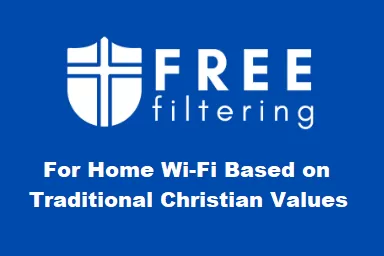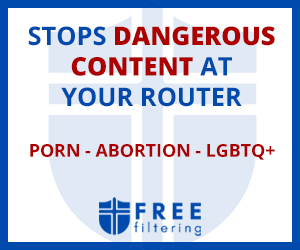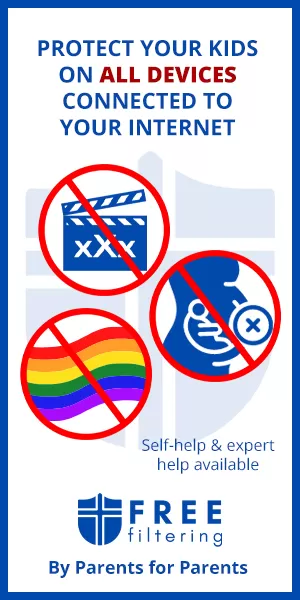
FreeFiltering is a DNS-based web filtering system designed to make the internet a “Safer Place for Souls™”. That means we’ll help you block websites that are devoted to promoting evil. We’ll help you automatically block ~1.8 million pornographic websites already catalogued in our database. And since porn purveyors are slick, and constantly putting up new sites to suck in innocent victims – we’ve built artificial intelligence that automatically detects if a brand-new website is pornographic, so its blocked before it even loads. Over time, we’ll be adding additional block categories for websites that promote values contrary to the historic Christian tradition. More importantly, as we grow, we’ll build tools to educate you on how to become a better steward of your God-given resources by redirecting your spending and investments to companies that don’t actively promote evil causes. We’ll need your help and input to build the service in a way that brings glory to the Father, Son, & Holy Ghost.
Simple Answer: Change a simple setting on your router – devices connected to your Wi-Fi through the router won’t be able to access blocked websites.
Complicated Answer: The Domain Name System (DNS) functions like the “phonebook” of the Internet. Your Internet Service Provider (ISP) provides you with its own DNS by default. Continuing to use the default DNS from your ISP is like giving your kids a mob boss’ contact list. You’re inviting your kids to call up all kinds of shady characters if you’re still using the default DNS from your ISP.
We generally access specific websites online through easy-to-remember domain names, like Amazon.com or Facebook.com. But web browsers actually interact with web servers through hard-to-remember Internet Protocol (IP) addresses. DNS translates the easy-to-remember domain names like Amazon.com to the actual IP addresses that browsers need to load the requested site. Each device connected to the Internet has a unique IP address which other machines use to find the device. DNS servers eliminate the need for us to memorize random IP addresses such as 192.168.1.1 (in IPv4), or more complex newer alphanumeric IP addresses such as 2400:cb00:2048:1::c629:d7a2 (in IPv6).You can imagine our filtering service as being a black permanent marker we use to black out the phone numbers of shady characters in the phone book.



